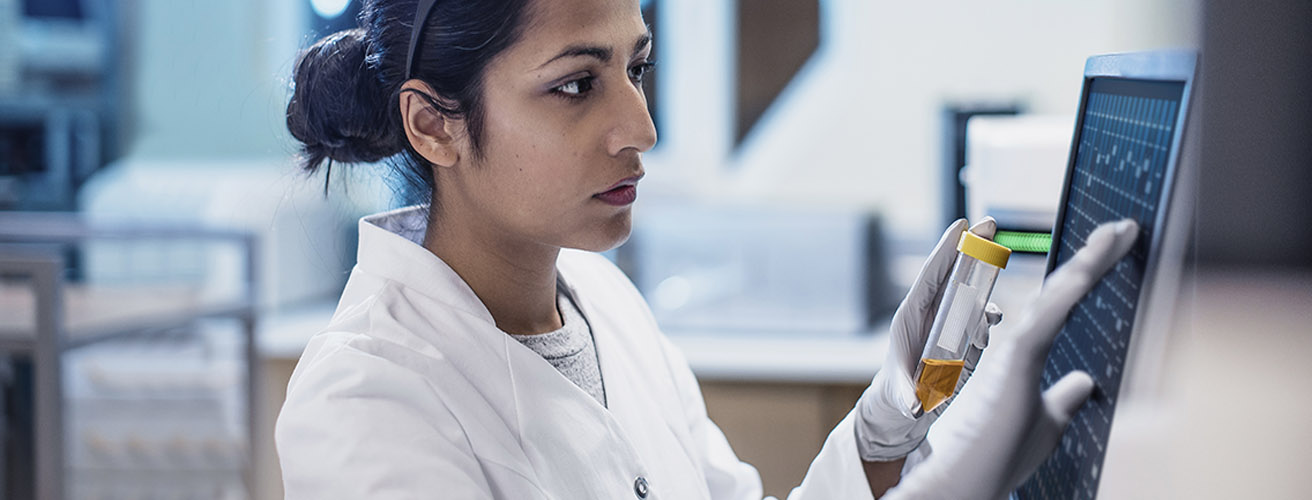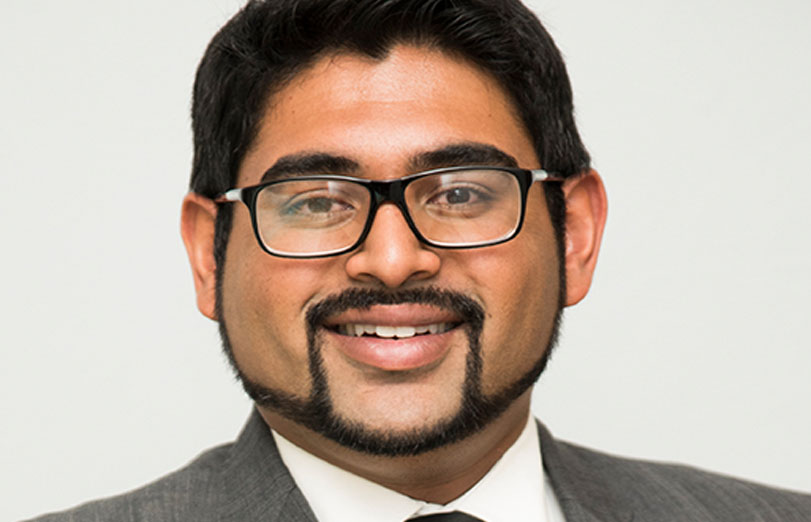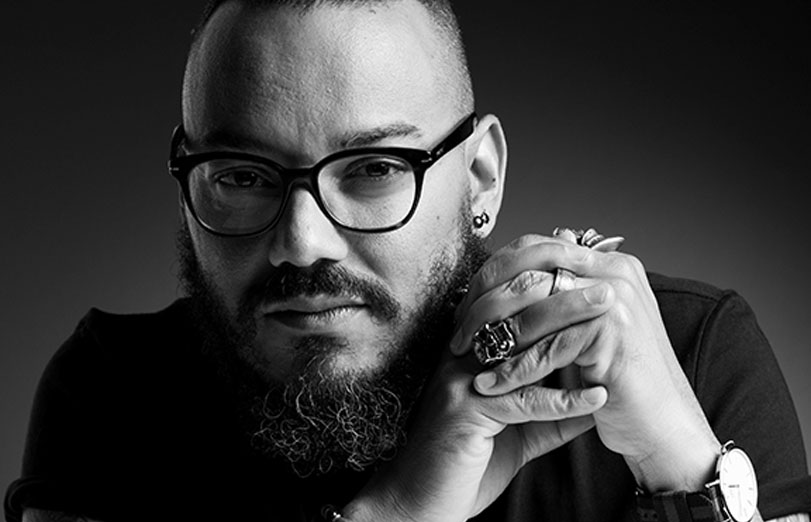Watch the full webcast
We'd like to know what you thought of this episode
The evolution of healthcare means that the industry is moving away from looking purely at clinical problems faced on a day-to-day basis, to looking at how data and information can make medical practices better. As an example of this, electronic medical records (EMR) are now being used for the first time in South Africa as a way of changing and influencing medical decisions by converting data to information.
Dr Chris Mathew is Netcare’s clinical lead for their digitisation project to establish Africa’s largest EMR system. Having launched their system in three Western Cape hospitals, one of their biggest current discussions with doctors is whether an EMR system actually makes things better. For example, if a doctor needs to spend hours typing on an iPad rather than spending time with the patient, what is the benefit? “With an EMR system, we now have actual data about clinical practices such as, which patients got their medication on time on a ward round and which ones didn’t, or who had their blood tests and chest x-rays done,” Mathew explains. “So, for the first time we have the power of data at our fingertips, which is infinitely better than before, as we started from a baseline of zero.”
In the context of the Covid-19 pandemic, Mathew says that the ability to gather data digitally has been hugely useful. “For the first time, we saw doctors actually wanting electronic records, so that they could step away from the bedside and not expose themselves to the virus,” he says. “They realised they could actually use an EMR to provide better care, by doing virtual ward rounds using Zoom and then using their iPad to review the patient or their results.”
This is a completely new way of operating in the healthcare sector that hasn’t been seen in South Africa until now. And because the systems were gathering so much data during the Covid pandemic, doctors had access to structured information that they could use to inform decisions.
“It’s changed the way we implement things and for me that’s the real power – that we actually have information, not just data.”
Moving from data to information
So, what is the key to translating data into information? This is something that writer and editor Kojo Baffoe has had to learn to do when producing content. “My work forces me to listen, because when you’re interviewing someone, you’re sitting and absorbing all the information to be able to write an article or put a content piece together,” he comments.
The concept of ‘content is king’ is widely known, but Baffoe feels that what is left out is the idea of context. “When you’re looking to extract information out of data, you need to be fully focused on the context, and you need to do so without judgment.”
But removing judgment is hard to do. In his book Thinking, Fast and Slow, behavioural psychologist and Nobel Prize winner Daniel Kahneman says that most of our thinking is informed by our biases. So how do we remove that tendency to judge what we’re listening to? Baffoe adds it’s about waiting to respond before jumping in with a response. “It’s about putting that hesitation in your own thinking as you’re interacting with someone and just trying to absorb what they’re saying, rather than trying to write the article as they speak it.”
Becoming a better ‘data listener’ is also a big challenge in a highly technical medical environment. Mathew says that the first step to taking away bias is to be aware that there is bias in the first place. In a medical context, Mathew states that healthcare professionals often have a preconceived idea of what the answer should be. “You’re not looking to see what the data says – you’re looking for something to confirm your hypothesis, rather than to challenge it.” There’s also a tendency for medical professionals to jump to solutioning. “Rather than really looking at the problem with an open mind, we tend to just say that we’re going to fix whatever the problem is with the solution we have in mind.”

Discerning amid a sea of information
Since the arrival of the Covid-19 pandemic, an abundance of data about the virus is now available. But how do medical professionals become better curators of this information? “We say it’s information, but at the end of the day, it’s data that comes with opinion,” remarks Baffoe. “At a time like this, it’s even more critical for people like medical professionals to be leading that discussion, because these days everyone is an armchair epidemiologist.”
Mathew says that the medical community in South Africa is generally very strong clinically but tends to fall short on the research side. “It’s one thing to read a medical journal article, but another to actually appraise, critique and analyse it to say whether the data is accurate and the evidence is strong,” he comments. As an example of this, over the course of the pandemic, the medical community was producing research papers about it on an unprecedented scale, and two very reputable medical journals had to retract papers that contained flawed data and questionable methods. “Don’t assume that the source is what makes the data accurate. Take the time to step back and look at it critically with a fresh set of eyes and filter out all the noise in the volume of data.”
Storytelling to affect behavioural change
But information isn’t the answer to behavioural change – otherwise every billboard that says we should eat healthier and live a better lifestyle would automatically change our behaviour. So, what is it that really makes messaging stick? As it turns out, the key missing ingredient may be the power of storytelling.
Stories have been part of the human race since the dawn of time, and Baffoe notes that it’s important to reconnect with sharing stories, starting with the individual.
“Technology has become so pervasive, and because we seem to exist through it, we forget that what’s more important is the story. Everything else is just the delivery system. To be able to influence behaviour, you have to start with a story, and your smallest unit within that story: the individual.”
Baffoe observes that as human beings, we struggle to connect with concepts that are abstract and not relatable. “For example, saying you need to wear a mask for the safety of everyone around you is an abstract concept. But telling the story of a child who has Covid and is asymptomatic and passes it on to their elderly grandmother makes it much more real.” Baffoe adds that stories need to be told to people around an individual, using data to then reinforce and back up the insights you’re providing, and the conclusions that come from it.
A crisis of empathy
When it comes to telling stories in a medical context, there’s a growing body of evidence that the brain-body is deeply connected, and that the ability for a story to generate empathy and rapport is part of the body’s healing process.
In terms of how we use data to be more empathetic, Baffoe says it’s about being able to process information from data while tapping into that human element. “This framework that's being created, still has human beings in it – yourself and the person that’s sitting across from you. This provides the insights to see the world through someone else’s experience and perspective, and to use data to get a better understanding of another human being.”
How do we use data to create more empathy in an organisation?
In their book Compassionomics: The Revolutionary Scientific Evidence That Caring Makes a Difference, physician scientists Stephen Trzeciak and Anthony Mazzarelli talk about how to value compassion. Mathew says that in both private and government healthcare in South Africa, the medical community has lost compassion, focusing rather on revenue generation and on trying to get through the list of patients on a given day.
“There’s a common perception that taking the time to spend with your patients and talk to them is time wasted,” he explains. “But research has found that just showing compassion actually generates better outcomes.” And it's not just better outcomes in terms of patients healing and being clinically better and recovering better. As it turns out, compassion also affects the financial outcomes for healthcare institutions too.
Mathew adds that these ideas of compassion and empathy should be embraced across organisations as a company-wide culture. “I think once we change that narrative – to actually put empathy and compassion to the forefront – we bring back that baseline to remind people why they became doctors in the first place.”
Mathew uses the Covid context to illustrate the importance of empathy when it comes to patient interaction. One of the toughest things his team had to face was dealing with critically ill patients who weren’t able to see their families due to Covid visitor restrictions. People lost family members and were unable to see them and say goodbye as part of the mourning process. “It was such a lightbulb moment to actually just to sit back and say, imagine it was just your family member and they were in ICU and couldn’t see anyone,” he notes. Because of the masks and PPE, patients weren’t even able to see human faces or friendly smiles among medical staff, which compounded the situation.
How then does focusing staff efforts on data capturing exercises help with patient compassion and care? Mathew observes that people often think that with an EMR system, the nurse or doctor is spending all their time on their iPad capturing data and neglecting their patients. But what they actually found is the opposite: that they’ve actually reduced the administration time, which allows more time to be spent with patients.
Mathew concludes the goal of an EMR system is not to create a new way of operating per se, but rather to make what was done on paper electronic. So, while the data is the same, it’s now far more accessible.
“We now have sight of clinical care that is so much more insightful than ever before. The amount of data we’re gathering is beyond what we can grasp – it’s such a new sector and we’re learning new things every day.”
Extraordinary times need Out of the Ordinary solutions. Our four-part live In conversation series will equip, empower and inspire you to re-imagine your medical career, your practice and your future. Find out more.

Dr Chris Mathew
Dr Chris Mathew is currently the Health Informatics Officer for Netcare. He serves as the clinical lead for their digitisation project, which will establish the largest Electronic Medical Records (EMR) system on the continent and create South Africa’s first fully digitised hospital.
Before joining Netcare, Chris trained as a medical doctor, completed an MBA as a Louis Dreyfus-Weidenfeld Hoffman Saïd Scholar and then a Masters in international health and tropical medicine as a ExxonMobil Global Health Scholar, both at the University of Oxford. He is passionate about healthcare and technology, the intersection of the two and improving healthcare for all South Africans.

Kojo Baffoe
Kojo Baffoe is an entrepreneur, writer, speaker, content architect and former magazine editor.
He is an African, committed to contributing to the development and future of this continent, across sectors and countries.
Having worked in multiple industries at different levels, he brings those experiences and insights into anything that he is involved in.
He works to create solutions to business challenges in a way that is relevant, resonates and is contextual.




